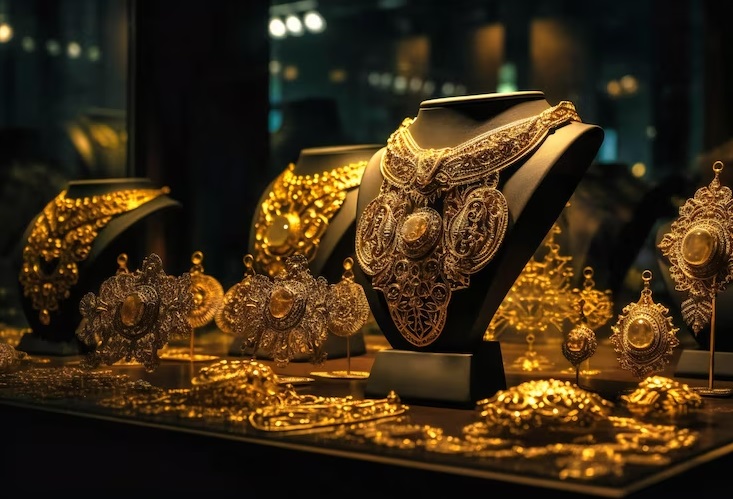Inherited jewelry often comes with deep emotions. It might be from a parent, grandparent, or a loved one who meant the world to you. But sometimes, it just sits in a drawer, never worn, collecting dust. You might wonder, “Should I sell this?” It’s a big decision. And it’s not just about money—it’s about memories, timing, and value.
If you’re thinking about selling inherited jewelry, read this first. We’ll guide you through everything you need to know. From getting it appraised to finding the right buy and sell jewelry stores, this post has your answers. Let’s get started.
Understand What You Own
Before you sell anything, know what you have. Is it real gold or gold-plated? Are the diamonds genuine? What’s the age and brand? These details matter. They affect how much it’s worth. Take time to inspect the jewelry. Look for marks like “14K”, “18K”, or “Platinum”. These help identify the metal. A professional should check gemstones.
You can also research online, but nothing beats a certified appraisal. An expert can tell you the actual value.
Consider Its Sentimental Value
Think about why you inherited the jewelry. Was it a wedding ring? A birthday gift? A family heirloom? Some items carry memories that money can’t replace. Make sure you’re ready to let go emotionally. Talk with family members if needed. Others may want to keep it.
It may be easier to sell if it doesn’t have personal meaning. Still, give yourself time. There’s no rush.
Get a Professional Appraisal
An appraisal gives you the facts. How much is it worth? What’s the current market value? Does it have historical significance? A certified appraiser will examine the item and provide a detailed report. This protects you from underselling.
Appraisals are essential even if you’re not planning to sell right away. You’ll have a record for insurance or estate planning. Look for independent appraisers. Avoid those who also sell jewelry, to keep things fair.
Learn About the Market
Jewelry values go up and down. Gold, silver, and gemstones change in price regularly. Check market trends. Is gold at a high? Are vintage rings in demand? When the market is strong, you may get a better price.
It’s also good to visit local buy-and-sell jewelry stores. You can see what items like yours are selling for, ask questions, and compare opinions.
Choose Where to Sell
You have options. Each one has pros and cons:
a. Local Jewelry Stores
These are a common choice. Many buy-and-sell jewelry stores will assess your pieces for free, and some offer cash on the spot. It’s quick and easy.
But be cautious. Don’t accept the first offer. Visit a few stores to compare.
b. Auctions
If your jewelry is rare or antique, consider an auction. It may attract collectors who will pay more.
However, auctions charge fees and take time. You also may not get the final price you hoped for.
c. Online Marketplaces
Sites like eBay, Etsy, or Facebook Marketplace allow you to reach more people. You set your price and terms. But selling online takes effort. You must list the item, take photos, and communicate with buyers. There’s also some risk involved.
d. Consignment Shops
You leave your jewelry with the shop. They sell it for you and take a percentage. This option may take longer, but you might get more money than a quick cash sale.
Beware of Scams
Not all buyers are honest. Be cautious when selling. Avoid buyers who rush you. Don’t send items without payment. If something feels off, trust your gut.
Only work with established buy-and-sell jewelry stores. Look for good reviews and certifications. If selling privately, never meet strangers alone. Always choose public places.
Clean and Photograph Your Jewelry
Presentation matters. Before showing your jewelry, clean it gently. Use warm water, mild soap, and a soft brush. Take clear photos. Natural light works best. Show different angles. Highlight unique features.
Good photos help if you’re selling online or want multiple offers.
Know Your Bottom Line
How much do you want? Decide on a minimum price. This will help in negotiations. Don’t feel pressured to accept less. Remember, your jewelry may have value beyond just metal weight. Style, brand, and condition all play a role.
If one store offers too little, walk away. Other buy-and-sell jewelry stores may offer more.
Selling vs. Repurposing
Not ready to sell? You have other options. Repurpose the jewelry. Turn a brooch into a pendant. Combine rings into a new design. This keeps the memory alive but makes the item wearable for you.
You can also pass it down to another family member. Sometimes, the next generation will appreciate it more.
Take Your Time
Don’t rush the process. Selling inherited jewelry is a personal decision. Take time to think, research, and plan. Ask questions. Talk with professionals. Visit multiple buy and sell jewelry stores. The more informed you are, the better your outcome.
Conclusion
Selling inherited jewelry can be emotional and complex. But it can also bring freedom, extra income, or even a sense of closure. Before you make a decision, take the proper steps. Understand the value, clean your jewelry, and compare offers. Most importantly, work only with trusted buy and sell jewelry stores. They’ll give you honest answers and fair prices. Whether you sell, keep, or redesign, make a choice you won’t regret.



